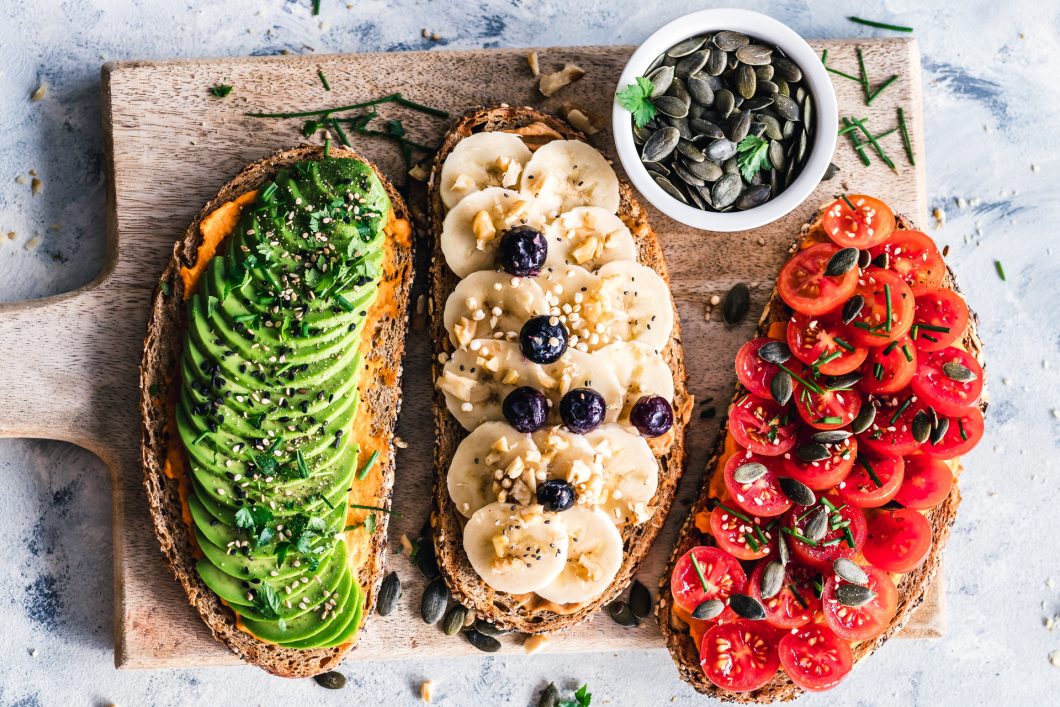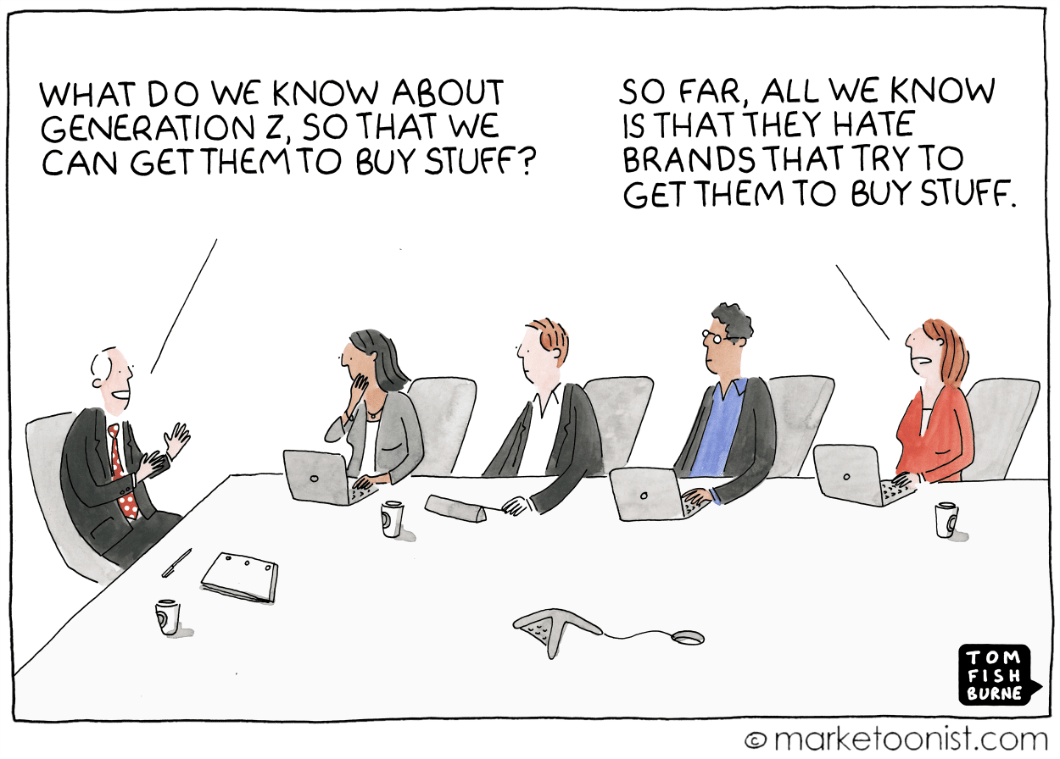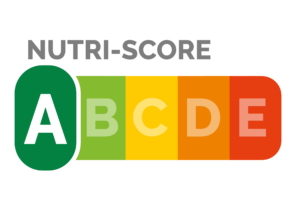Young and hungry – but not at all costs
Business development • Generation Z demands. But not only on the world's leaders. The demands on food and the food industry are also high. This young generation has a sustainable mindset that permeates everything they do, consume and eat. They buy products that confirm their lifestyle – and if they still live at home, the parents will buy what their youngsters want. Peter Wennström, CEO of the brand consulting company The Healthy Marketing Team, guides us right to a new consumer group with ethical indicators..
The game plan for product marketing has changed in recent decades. Today’s consumer groups are ‘believers’. And this is especially true for young adult consumers.
– In principle, the area of food and health is a religious market. Facts belong to yesterday, and facts are true only if it is in accordance with your own religion. Instead, we are attracted by products that tell us someting about our health or beauty, in a way that is consistent with our own conceptual world, says Peter Wennström, CEO of The Healthy Marketing Team, an international consulting company, specializing in consumer communication and brand positioning in the area of food and health.
Commandments for success
At the same time, young generations are demanding. Therefore, to meet success with your products, it is crucial for food companies to understand in-depth which generation consumers are connected to. The conditions for marketing today are fundamentally different from ten, twenty years ago.
– A big difference is that everything is searchable and thus transparent, says Peter Wennström.
Therefore, there are several commandments to live up to as a food company: Be consistent in your communication. Know carefully what requirements the consumer places. Understand the consumer’s lifestyle and ‘religion’, and know what conflicts you need to resolve within it.
– And you need to know what role your brand has in the big picture. It’s not just your product that should be eaten. Your brand should also be eaten, says Peter Wennström.

Generation Z are gamechangers
And those who primarily want to believe in and eat your brand are today’s young adults. Those belonging to generation Z. ie born around the turn of the millennium.
Unlike earlier generations, they do not belong to a youth culture that is separate or isolated from the parents. They are influencers over generational boundaries. And they affect the agenda today.

Think about Greta Tunberg. She is a Swedish climate activist who demands the world’s leaders. The look in her eyes is serious. She inspires and mobilizes young people around the world. She irritates world leaders and is at the same time a hero in the eyes of many – completely cross-generational.
She is a representative of generation Z. The young adults who were born from the mid-1990s to the mid-2000s. They are marked by the time after the attacks in the US on September 11, 2001, and the climate crisis. They are passionate about making the world a better place.
Generation Z are gamechangers.
Affects the parents
| Eat less sugar (e.g. sweets and soft drinks) | 25% |
| Eat more vegetarian food | 24% |
| Reduce meat consumption | 22% |
| Eat more fruit and vegetables | 22% |
| Start cooking more at home | 18% |
| Shop more organic | 17% |
| Shop more Swedish-produced food | 17% |
| Plan food purchases (e.g. weekly shopping) | 16% |
| Start source sorting | 15% |
| Shop more locally produced | 14% |
| Buy free-range eggs | 12% |
| Stop buying ready meals | 8% |
| Introduce vegetarian day | 8% |
| Stop buying animal-tested hair and skincare products | 7% |
| Stop thinking about calorie intake | 4% |
| Other things | 2% |
| No, I have not affected my family. | 34% |
The thing is that these young adults are listened to. Their parents have involved them in the majority of decisions. This applies not least to the food, which should be sustainable and healthy.
– The parents are so-called curling parents. When the child says ‘I do not want to eat sausage anymore’, it is not the child’s problem, but the parents’, which links the refusal to meat eating directly to the child’s psychological needs. As a traditional parent, you wanted to give your children food and nutrition, but as a curling parent, you want to meet the child. There is a conflict within the parent, and therefore, the children of today have more influence of the adults buying habits, than ever before, says Peter Wennström.
These young generations are leading change at all levels. Generation Z has a sustainability approach that permeates their entire consumption and eating patterns.
– By tradition, the girls, like their older sisters, are health conscious. But the boys of this generation are not far behind, says Peter Wennström.

Believe and know
| Generation Z | Generation Y (millennials) |
|---|---|
| Uses five different digital devices | Uses two different digital devices |
| Communicates via images | Sharing content |
| Future-focused | Focused on today |
| Realists | Optimists |
| Want to work for success | Want to be discovered |
Peter Wennström tells about the consumer segmentation his team has done, together with a research group at Lund University, which is based on the belief in food.
– The study’s working name was the church of healthy eating. It was clear, that young consumers judge facts based on what they believe, rather than on facts. In the study, we wanted to map out what kind of “health religions” they professed.
In this way, Peter Wennström and his team were able to identify four different segments (religions) in the group, all of which can be described as healthy believers, unlike previous generations of healthy eaters. With the help of the new segmentation, it will be easier to understand and communicate with the new generation of consumers.
– Communication must be done in entirely different ways today. Older generations watched the same TV channel, and we gained the same knowledge, that is, a single, fact-believing worldview. The young adults, including the generation Y (millennials) and the younger generation Z, live in their own media silos, says Peter Wennström.
Digital natives
The development of who owns the facts have changed entirely from the start of the Internet, and even more so from 2007 when we were introduced to the iPhone. After that, we entered a new world of communication.
Throughout growing up, generation Z has lived with the Internet and social media. They are digital natives who alternate between the physical reality and the digital, and they experience no difference between them.
– Today we have social media, that creates and strengthens our diverse worldviews. Therefore, these generations live in different worlds, depending on what information they choose. You can choose your facts, and what you are inspired by, in marketing about food and health, is governed by your own worldview. This is here we can help our customers, to develop the right products and story for their brand, says Peter Wennström.

Food is an identity marker
Food is one of the most prominent identity markers among young people. It is what you eat, or rather what you do not eat, that shows who you are and what you stand for.
Living sustainably and healthily are essential values. Generation Z is associated with eating more vegetarian meals. The concept of vegetarianism is a lifestyle cause and an indicator of how one relates to diet, health, consumption and sustainability.
– They can perceive themselves to be vegetarian, and describe themselves as vegan. But they are not consistent, and therefore impactful. They can cheat by eating a piece of meat every now and then. However, they would never admit that they are not vegan, says Peter Wennström
Labels are extremely important.
– Your food is your identity, and it becomes your religion. And it’s about satisfying your own needs, explains Peter Wennström.

Ethical labels
Being able to change labels on themselves has probably played a significant role in increasing the number of flexitarians among young people, believes Peter Wennström.
– Everything is about identity, and food choices are an active part of creating identity. Brands are, therefore, significant. From our research, we have created the concept of foods that talks. The food, ie the company behind it, must communicate clearly to reach out, he says.
But when it comes to communication with consumers, nothing has changed.
– We land in psychology and social psychology. The latter point, social psychology, weighs more heavily among young consumers. Many of them ask the question: How do others look at me when I buy this product ?, says Peter Wennström.
For Generation Z, the product is valued in two ways, he explains.
– Either it is instagramable, or it is negligible. The negligible product is called eat and forget.
The younger generation also does not cook unless it is experience-based. In that case, they can just as easily eat something quickly and simply.
– We also see that the middle category of food is on the way what we might call a dull or everyday food. The younger generation would instead go out and eat, says Peter Wennström.

Urban nomads
The real world is now organized around the digital, and that means we are more often in motion. We are always on our way somewhere. Like urban nomads. As society changes, it also affects the way we eat.
The new flexibility has given rise to a phenomenon called snackification. Meals become like temporary points of attachment in our moving lives.

But snackification should not be confused with the traditional small snack. In the new small-eating culture, we expect more of everything; more substance, taste, quality and nutrition than a pure fruit or sandwich can offer on the way between two meetings.
– We are increasingly aware of what we eat, and more of us want to eat well. Snackification is about mini-meals. Liquid mini-meals are also a trend. The snacking may well consist of juice, smoothie or something hot to drink, says Peter Wennström.
We carry our conflicts
Generation Z, however, skips the plastic lid on the cup, straws and everything else about packaging that is not perceived as durable. That’s because today’s consumers carry a variety of conflicts, and they have to be dealt with. The disputes are divided into several areas; local vs global, fast vs slow, ethical vs selfish.
– A food producer or marketer needs to understand where the consumer is. And it is crucial to help the consumer to find their way, says Peter Wennström.

Environment and convenience combined
He tells about the studies his company HMT has done at soft drink manufacturers in England. He discovered a clear consequence linked to consumer conflicts. In a big city like London, fresh water is not available everywhre, and the consumer is forced to buy water in plastic bottles. This is no longer a sustainable consumption pattern for a lot of ethically driven consumers. They got bad conscience. But they are aware that they do not have a choice. Therefore, they require the manufacturers to take their share of the responsibility.
– The soft drink manufacturer handled it all by openly confirming that there is a conflict in buying water in a plastic bottle. But the company also told, that they are switching to recyclabe plastic, and that they actively are working on recycling systems, which allows the environment and convenience to walk hand in hand, says Peter Wennström.
Transparency is crucial
Transparency and conflict management of this kind is crucial for generation Z. They rate not only the product but the consumption itself. The feeling of what the product – and the brand – contains, promises and delivers, determines a buy.
For companies, this means that they have to keep what they promise, both in terms of marketing and, such as, ethical working conditions. We should not forget that generation Z is truth-seeker and that they can mobilize.
Transparency describes today’s communication landscape. Companies cannot bury the head in the sand. You have to talk about conflicts.
– The transparency must be total. When it comes to branding, one must support identity as far as possible. You have to ask questions such as: What is the purpose of consumption? What purpose does my brand have ?, says Peter Wennström.

Positioning of your brand
Each generation consists of several subgroups, or tribes, with different values and needs. To understand how the groups differ, you also need to understand and be able to relate to this. What makes them upset, engaged – or indifferent?
– Today, the question of how to build your story around your brand is extremely important. It can be a story about the environment – and you can tell it in many ways. The same goes for using traditions, ethics or science. What you tell us about your brand is your brand positioning, says Peter Wennström.
And to reach the young adult generations, ethical brand positioning is, if possible, more important than ever. Still, generation Z has not taken over the stage, but they have come out into the working world and are already a buoyant group. If they still live at home, they have parents who buy what their youngsters want. It won’t be long before they take over both managerial and political positions.
The market is changing and transparency rules.
Please, share this article if you liked it.
[et_social_share]





